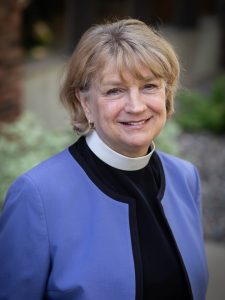 By Bishop Ann Svennungsen
By Bishop Ann Svennungsen
When was the last time you apologized to someone? Not a “sorry” after bumping them in the grocery line. And not a non-apology like “I’m sorry you feel that way” or “I apologize if you were offended.” Indeed, such non-apologies add harm; a sort of blaming the other for “being too sensitive”.
Maybe the beginning of this new year is a good time to explore apologizing as a faith practice; a good time to examine when and how we express remorse and seek to make amends. As we work to become a more diverse and culturally competent church, we will make mistakes. Are we able to admit them swiftly and seek restoration?
For example, an ELCA bishop recently brought difficult news to a Latinx congregation on the Feast Day of Our Lady of Guadalupe. The timing of the news, given the cultural significance of the day, was unfortunate. What can we learn about the “faith practice” of apologizing from this situation?
“It often feels that our only goal is to be right – to take a stand – no matter what the cost.”
In the context of our civic life, we feel pressure to develop rigid opinions about many things (vaccinations, the fairness of an election, etc.). It often feels that our only goal is to be right – to take a stand – no matter what the cost. No matter what relationships are left in tatters along the way.
Our God calls us to something different. We were created for relationships – with God and with one another. We were created for community. And we are called to tend these gifts from God.
THE DAY AFTER CHRISTMAS, WE MOURNED the passing of one of our generation’s great saints, Archbishop Desmond Tutu. His impact on the church and world continues. And part of his legacy was his commitment to confession and forgiveness. Chair of the Truth and Reconciliation Commission in South Africa, he wrote, “True reconciliation is based on forgiveness, and forgiveness is based on true confession, and confession is based on penitence, on contrition, on sorrow for what you have done.”[i]
“As we work to become a more diverse and culturally competent church, we will make mistakes.”
The dismantling of apartheid was dependent upon such a process. In his book, No Future Without Forgiveness, the Archbishop wrote, “Our country’s negotiators…opted for a ‘third way,’ a compromise between the extreme of Nuremberg trials and blanket amnesty or national amnesia. And that third way was granting amnesty to individuals in exchange for a full disclosure relating to the crime for which amnesty was being sought.”
Perhaps the next time we share in the liturgy of confession and forgiveness, we add a moment of “silence to reflect on the people we have harmed; those to whom we should apologize in the coming week.” Our relationships matter. Our communities matter. May God grant us wisdom and compassion in the practice of saying we are sorry.
[i] https://greatergood.berkeley.edu/article/item/truth_and_reconciliation
